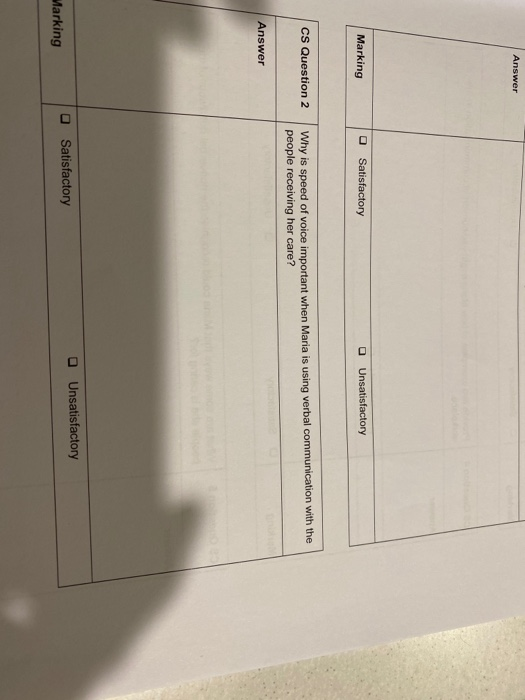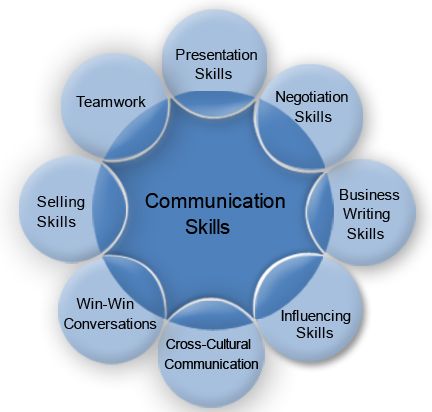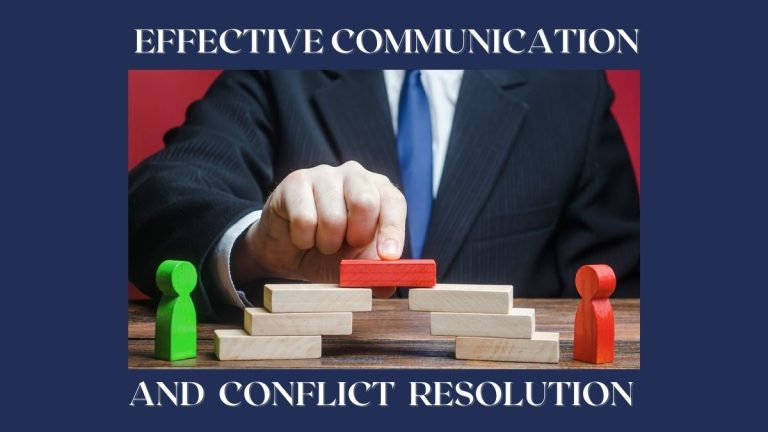Communication Skills are Vital
Communication skills are vital to civic life because they enable individuals to effectively express their thoughts, opinions, and ideas to others. In order for a community to function efficiently, people must be able to communicate with each other in a clear and concise manner.
This includes being able to listen actively, ask questions, and respond appropriately. Good communication skills also help to build trust and establish strong relationships, which are essential for creating a sense of unity and cooperation within a community. Effective communication is also necessary for civic engagement.
Whether it is attending community meetings, participating in public forums, or contacting elected officials, individuals must be able to articulate their concerns and ideas in a way that will be heard and understood by others. Without strong communication skills, individuals may feel isolated and powerless, unable to make a difference in their community. In short, communication skills are vital for facilitating effective civic participation and fostering a sense of community cohesion.
Importance Of Communication Skills In A Socially Diverse Society
Effective communication skills are vital to civic life in a socially diverse society. Clear and concise communication allows individuals to express their thoughts and ideas, fostering unity and cooperation within the community. It also enables active participation in civic engagement, ensuring that concerns and ideas are heard and understood by others.
Without strong communication skills, individuals may feel isolated and unable to make a difference in their community.
Communication As A Bridge In A Diverse Society
In a socially diverse society, effective communication plays a crucial role in bridging the gaps between individuals from different backgrounds. Here are some key reasons why communication skills are important in fostering understanding and unity in such communities:
- Promoting inclusivity and understanding: Good communication skills enable individuals to express themselves clearly and understand others better, leading to increased empathy, respect, and acceptance among diverse groups.
- Reducing misunderstandings and conflicts: Effective communication helps to prevent misunderstandings by allowing individuals to clarify their thoughts, intentions, and perspectives. It also helps in resolving conflicts and promoting peaceful coexistence.
- Breaking down barriers: Through effective communication, people can overcome language barriers, cultural differences, and stereotypes. It helps in building a shared understanding and harmony among people from different social, cultural, and ethnic backgrounds.
- Encouraging collaboration and teamwork: Communication skills create an environment where diverse individuals can collaborate, share ideas, and work together towards common goals. It promotes the exchange of knowledge, skills, and experiences, leading to innovation and growth.
- Enhancing social cohesion: Good communication skills foster positive relationships and strengthen the sense of belonging within a diverse community. Individuals can connect, engage, and participate actively in various civic activities, contributing to the overall well-being of the society.
Enabling Effective Expression Of Thoughts, Opinions, And Ideas
Communication skills are vital in a socially diverse society as they enable individuals to express their thoughts, opinions, and ideas effectively. This is important for several reasons:
- Self-empowerment: Good communication skills allow individuals to confidently express themselves, enabling them to assert their rights, needs, and desires. It empowers them to actively participate in civic life and engage in meaningful discussions and decision-making processes.
- Promoting democratic values: Effective communication is essential for a well-functioning democracy. It enables citizens to voice their opinions, advocate for social issues, and participate in public debates. By expressing their views, individuals contribute to the formation of public policies and the overall development of the society.
- Fostering critical thinking and creativity: Through communication, individuals can share their unique perspectives, challenge existing beliefs, and spark creativity. It encourages open-mindedness, stimulates intellectual discourse, and broadens the collective understanding of complex issues.
- Enhancing personal relationships: Good communication skills build stronger interpersonal relationships by facilitating honest and open conversations. Individuals can communicate their needs and expectations, resolve conflicts, and nurture deeper connections with people from diverse backgrounds.
- Influencing positive change: Effective communication enables individuals to articulate their concerns, raise awareness about social injustices, and advocate for positive change. It empowers them to mobilize others and create a collective impact on societal issues.
Establishing Trust And Building Relationships
Communication skills are essential in a socially diverse society as they play a pivotal role in establishing trust and building relationships among individuals. Here’s why effective communication is vital in this context:
- Creating a sense of belonging: Good communication helps individuals feel valued, understood, and included in their communities. It fosters a sense of belonging and creates an environment where everyone’s voice is heard, regardless of their background.
- Building empathy and understanding: Effective communication allows individuals to actively listen to others, understand their perspectives, and empathize with their experiences. This promotes mutual respect, compassion, and appreciation for diversity.
- Facilitating collaboration and teamwork: Strong communication skills enable individuals to collaborate effectively with others from different backgrounds. By fostering clear and concise exchanges of information, ideas, and feedback, communication helps in achieving common goals and solving shared challenges.
- Strengthening social networks: Through communication, individuals can establish and maintain strong social connections. They can network, form friendships, and engage in collective actions that address community issues and strengthen social cohesion.
- Promoting effective leadership: Communication skills are essential for effective leadership in a socially diverse society. Leaders who can communicate their vision, values, and goals are more likely to inspire trust, motivate others, and lead by example.
Communication skills are vital in a socially diverse society as they bridge the gaps between individuals, enable effective expression of thoughts, opinions, and ideas, and establish trust and build relationships. Good communication fosters inclusivity, understanding, collaboration, and a sense of belonging, contributing to the overall well-being and progress of civic life.

Credit: www.brookings.edu
Enhancing Civic Engagement Through Communication
Enhancing civic engagement through communication is crucial for effective community involvement. Communication skills play a vital role in expressing thoughts, ideas, and concerns, fostering trust and building relationships. By effectively communicating, individuals can make a difference in their community and contribute to a sense of unity and cooperation.
Effective Communication In Community Meetings And Public Forums:
- Active participation in community meetings and public forums relies on effective communication skills.
- Individuals who can communicate clearly and confidently contribute to meaningful discussions and debates.
- Effective communication allows for the exchange of ideas, opinions, and concerns among community members.
- Active listening, asking relevant questions, and providing constructive feedback are crucial communication skills in these settings.
- In community meetings and public forums, effective communication fosters understanding, collaboration, and the exploration of different viewpoints.
Articulating Concerns And Ideas To Elected Officials:
- Communication skills play a vital role in expressing concerns, ideas, and suggestions to elected officials.
- Individuals with strong communication abilities can effectively convey their needs and expectations.
- Clear and concise communication ensures that elected officials understand the concerns of their constituents.
- Articulating ideas and concerns in a compelling manner can help sway decisions and influence policy-making.
- Effective communication with elected officials allows for constructive dialogue, creating a stronger connection between the government and the community.
Empowering Individuals To Make A Difference In Their Community:
- Communication skills empower individuals to take action and make a positive impact in their community.
- By effectively communicating their ideas, individuals can rally support for causes they believe in.
- Good communication skills help individuals advocate for change, mobilize others, and gather resources.
- Through clear and persuasive communication, individuals can engage others in community projects and initiatives.
- Empowered individuals with strong communication skills can inspire and motivate others to join their efforts, creating a more vibrant and active civic life.
Enhancing civic engagement through communication is vital for building strong and connected communities. Effective communication in community meetings and public forums facilitates collaboration and understanding. Articulating concerns and ideas to elected officials allows for meaningful representation and decision-making. Empowering individuals to make a difference in their community through effective communication fosters a sense of ownership and unity.
Therefore, honing communication skills is essential for active and impactful civic participation.
Communication Skills For Unity And Cooperation
Effective communication skills play a vital role in civic life as they enable individuals to express their thoughts, opinions, and ideas clearly to others, fostering unity and cooperation within a community. Good communication skills build trust, establish strong relationships, and facilitate civic engagement by allowing individuals to articulate their concerns and ideas effectively.
Without these skills, individuals may feel isolated and powerless, hindering their ability to make a positive impact in their community.
Clear And Concise Communication For Community Efficiency
- Clear and concise communication is essential for community efficiency as it ensures that information is accurately transmitted and understood.
- When individuals communicate clearly and concisely, there is less room for misunderstanding or confusion, leading to more efficient decision-making processes.
- Effective communication also helps to streamline tasks and responsibilities, reducing errors and increasing productivity.
- By using clear and concise language, individuals can convey their ideas and expectations effectively, resulting in better collaboration and cooperation within the community.
- Clear and concise communication also improves transparency and accountability, as everyone involved understands their roles and responsibilities.
Active Listening, Questioning, And Appropriate Responding
- Active listening is an important communication skill that involves fully focusing on and comprehending what another person is saying.
- By actively listening, individuals can gather important information and gain a deeper understanding of different perspectives and opinions.
- Asking questions allows individuals to seek clarification and gather additional information, promoting effective communication and preventing misunderstandings.
- Appropriate responding involves providing meaningful and relevant responses to the information received, contributing to a productive and constructive conversation.
- Active listening, questioning, and appropriate responding foster open and inclusive communication, making everyone feel heard and valued within the community.
Creating A Sense Of Unity And Cooperation In Civic Life
- Communication skills play a crucial role in creating a sense of unity and cooperation within civic life.
- When individuals communicate effectively, they can bridge differences and build connections across diverse backgrounds and perspectives.
- By encouraging open dialogue and active listening, communication skills foster understanding and empathy, paving the way for collaboration and cooperation.
- Clear and respectful communication builds trust among community members, encouraging them to work together towards common goals.
- Effective communication also enhances civic engagement, as individuals feel empowered to voice their opinions, participate in decision-making processes, and contribute to positive change within their community.
Clear and concise communication is vital for community efficiency, active listening, questioning, and appropriate responding foster effective communication, and communication skills are essential for creating unity and cooperation within civic life. Developing and honing these skills not only benefits individuals but also contributes to the overall well-being and progress of the community as a whole.
Frequently Asked Questions On Why Communication Skills Are Vital To Civic Life?
Why Communication Skill Is Important In Our Life?
Communication skills are important in our life because they enable us to effectively express our thoughts, opinions, and ideas to others. In a socially diverse society, communication helps bridge the gap between different cultures and backgrounds. Good communication also helps build trust and strong relationships within a community, fostering unity and cooperation.
It is essential for civic engagement, allowing individuals to articulate their concerns and ideas to make a difference in their community. Additionally, effective communication can help resolve or avoid conflicts, connect with others, share ideas, and clarify information. It reduces wasted time and promotes teamwork and trust.
Overall, communication skills are vital in our personal and professional lives for effective interaction and successful outcomes.
Why Is Communication Important In Social Life?
Communication is important in social life because it allows individuals to effectively express their thoughts, opinions, and ideas to others. It helps in understanding and connecting with people, building strong relationships, and fostering unity and cooperation within a community. Good communication skills enable active listening, asking questions, and responding appropriately, promoting effective and efficient communication.
It also plays a vital role in civic engagement, as individuals need to articulate their concerns and ideas in a way that is heard and understood by others. Without strong communication skills, individuals may feel isolated and powerless, unable to make a difference in their community.
Overall, communication skills are essential for effective social interaction, creating a sense of belonging, and making a positive impact in society.
Why Is Communication Important In The Community?
Communication skills are vital in the community because our society is socially diverse. Effective communication allows individuals to express their thoughts, opinions, and ideas to others, promoting clear understanding and cooperation. It enables active listening, questioning, and appropriate responses, fostering strong relationships and trust within the community.
Good communication also plays a crucial role in civic engagement, allowing individuals to articulate their concerns and ideas to make a difference. Without strong communication skills, people may feel isolated and powerless. Therefore, communication is essential for creating a sense of unity, resolving conflicts, connecting with others, and sharing ideas.
It also reduces wasted time and helps build teamwork and trust. In summary, effective communication is vital in the community because it enables individuals to express themselves, build relationships, and actively participate in making their community a better place.
How Do Communication Skills Affect Society?
Communication skills are vital to society because they enable individuals to express their thoughts, opinions, and ideas effectively. In a socially diverse society, good communication allows people to understand each other and bridge cultural differences. Effective communication is also crucial in building trust and relationships, fostering unity and cooperation in the community.
Moreover, communication skills play a significant role in civic engagement. Whether it is participating in public forums, attending community meetings, or contacting elected officials, individuals must be able to articulate their concerns and ideas in a way that others can understand.
Without strong communication skills, individuals may feel isolated and powerless, hindering their ability to make a positive impact in their community. Therefore, honing communication skills is essential for individuals to actively contribute to society and create positive change.
Conclusion
Effective communication skills are vital to civic life because they enable individuals to express their thoughts, opinions, and ideas effectively. In a socially diverse society, the ability to communicate clearly and concisely with others is crucial for community functioning. Active listening, asking questions, and responding appropriately are all important aspects of good communication skills.
Furthermore, strong communication skills help build trust and establish relationships within a community. Unity and cooperation are fostered when individuals can communicate effectively with one another. Additionally, effective communication is essential for civic engagement. Whether it’s attending community meetings, participating in public forums, or contacting elected officials, individuals must be able to articulate their concerns and ideas in a way that will be heard and understood by others.
Without these skills, individuals may feel isolated and powerless, hindering their ability to make a difference in their community. Communication skills are vital for civic life, enabling individuals to contribute, connect, and create positive change within their communities.




